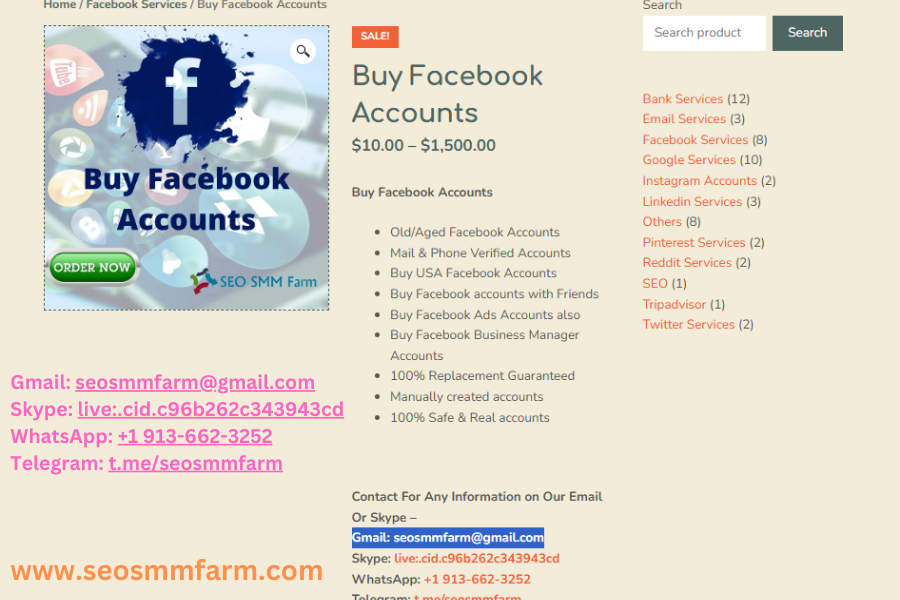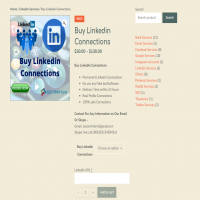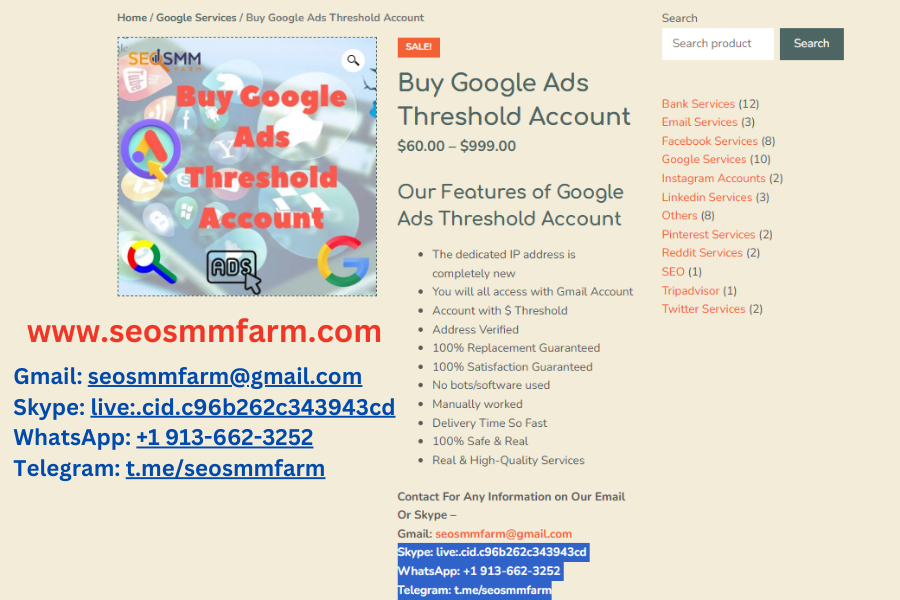Facebook Ads vs. Google Ads: Which Is Right for Your Business

Strong 8k brings an ultra-HD IPTV experience to your living room and your pocket.
Facebook Ads vs. Google Ads: Which Is Right for Your Business?
When it comes to digital advertising, two platforms dominate the landscape: Facebook Ads and Google Ads. Both offer unique advantages and cater to different types of marketing goals. But with so many businesses vying for attention, how do you decide which platform is best suited for your marketing strategy?
In this article, we’ll compare Facebook Ads and Google Ads, highlighting their strengths and weaknesses, so you can determine which one aligns with your business objectives.
What Are Facebook Ads and Google Ads?
Facebook Ads are paid advertisements that appear on Facebook’s platform (including Instagram and Messenger), as well as on the Facebook Audience Network. These ads allow businesses to target users based on demographics, behaviors, interests, and location.
Google Ads (formerly Google AdWords) are paid ads that appear on Google’s search engine results pages (SERPs) or on websites in the Google Display Network (GDN). Google Ads primarily targets users based on keywords that they are actively searching for.
Facebook Ads: Strengths and Advantages
Advanced Audience Targeting
One of the standout features of Facebook Ads is its unparalleled audience targeting capabilities. Facebook collects a massive amount of data on its users, allowing advertisers to segment their audience based on a wide variety of criteria, such as:
Demographics: Age, gender, education, relationship status, etc.
Interests: Hobbies, activities, favorite brands, etc.
Behaviors: Purchase behavior, device usage, travel habits, etc.
Custom Audiences: You can upload your own customer lists or retarget users who have previously interacted with your brand.
This level of targeting allows you to reach a highly specific audience, making Facebook Ads a great choice for businesses looking to build brand awareness and engage potential customers at different stages of the sales funnel.
Visual Ad Formats
Facebook is a highly visual platform, and its ads take advantage of this by offering a wide variety of formats, including:
Image and Video Ads: Showcase your products, services, or brand story in a highly engaging way.
Carousel Ads: Allow users to swipe through multiple images or videos in a single ad, ideal for displaying various products or features.
Stories Ads: Full-screen ads that appear in users’ Instagram or Facebook Stories for an immersive experience.
The visual nature of Facebook Ads helps businesses create emotional connections with their audience, making it ideal for brand-building campaigns.
Social Engagement and Virality
Another advantage of Facebook Ads is its social element. Facebook’s platform allows users to like, comment on, and share ads, creating an opportunity for organic virality. If your ad resonates with your audience, they might share it with their friends or engage with it, giving your brand additional exposure without extra cost.
Cost-Effective
For many businesses, Facebook Ads can be a cost-effective advertising solution. With its ability to target highly specific audiences, Facebook Ads often result in lower cost-per-click (CPC) and cost-per-impression (CPM) rates compared to Google Ads, especially for businesses in niches where competition isn’t as fierce.
Google Ads: Strengths and Advantages
Intent-Driven Advertising
Google Ads excels at capturing intent-driven traffic. When users search for specific keywords on Google, they are often actively looking for a solution to a problem. Google Ads targets these high-intent users with ads that appear alongside search results, making it an effective tool for businesses aiming to capture leads and drive conversions.
For example, if someone searches for “best running shoes for flat feet,” your Google Ads can target them with ads for your running shoe store, increasing the likelihood of a conversion.
Wide Reach Across the Web
In addition to Google’s search results, Google Ads allows businesses to advertise across a vast network of websites through the Google Display Network (GDN). With over 2 million websites in its network, Google Ads can display your ads on popular blogs, news sites, and other relevant locations where your target audience might be browsing.
This gives Google Ads an edge in terms of reach and visibility, especially for businesses aiming to generate traffic from a broad audience.
Keyword Targeting and Search Control
Google Ads is built on a keyword-targeting model, which means you can bid on keywords that align with what your potential customers are searching for. This level of control allows you to tailor your campaigns around the specific terms and phrases that are most relevant to your business.
Higher Conversion Potential: Since Google Ads targets users who are actively searching for information or products related to your business, you’re likely to capture high-quality leads that are further along in the buying journey.
Flexible Budgeting and Bidding
Google Ads gives businesses the ability to control their spending by setting a daily or monthly budget. Additionally, you can adjust your bids for specific keywords and campaigns, allowing for greater flexibility and cost control. Google’s smart bidding options also use machine learning to optimize your campaigns for better results.
Facebook Ads vs. Google Ads: Which One is Right for Your Business?
Both Facebook Ads and Google Ads have their own strengths, so the right platform depends on your business objectives and goals. Here’s a quick breakdown of which platform works best for different types of businesses:
Facebook Ads: Best For
Brand Awareness: If your goal is to build brand awareness and reach a large, targeted audience, Facebook Ads are ideal. With its powerful targeting options, Facebook can help you get your brand in front of the right people.
Lead Generation: If you want to engage users early in the buying process, Facebook Ads can help you create awareness and generate leads with visually compelling content.
Social Engagement: If your strategy involves creating a community around your brand or leveraging social shares, Facebook Ads are an excellent choice due to the platform’s engagement features.
Google Ads: Best For
Capturing High-Intent Traffic: If you want to reach users who are actively searching for products or services like yours, Google Ads is your best bet. Its keyword-targeting capabilities make it a powerful tool for businesses that want to capture demand at the moment it occurs.
Direct Sales or Conversions: For businesses that want to drive direct conversions, such as purchases or sign-ups, Google Ads excels because it targets users who are searching with intent and ready to take action.
Local Business Marketing: Google Ads is a strong platform for local businesses looking to attract customers who are searching for services in their area, thanks to its geolocation targeting.
Conclusion
Choosing between Facebook Ads and Google Ads comes down to your business objectives, budget, and the nature of your target audience. If you want to build brand awareness, engage users with visually appealing content, and leverage precise social targeting, Facebook Ads might be the right fit. On the other hand, if you’re looking to capture high-intent customers who are actively searching for your products or services, Google Ads could deliver better results.
For many businesses, a combination of both platforms might be the best approach. By running campaigns on both Facebook and Google, you can leverage the strengths of each to create a well-rounded and effective digital advertising strategy.
Note: IndiBlogHub features both user-submitted and editorial content. We do not verify third-party contributions. Read our Disclaimer and Privacy Policyfor details.



